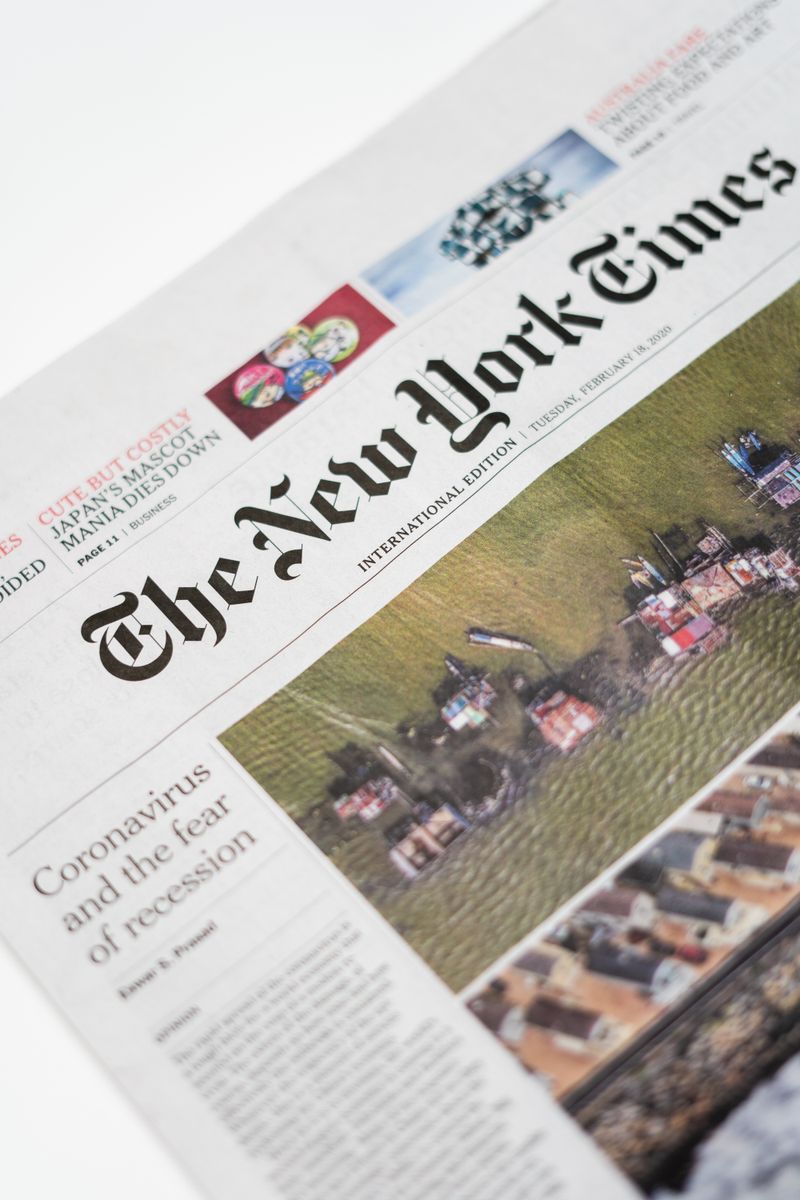Metroland Media Group to End Print Editions and Exit Flyer Business
Metroland Media Group, one of Canada’s leading media organizations, has announced its plans to discontinue the print editions of its community newspapers and exit the flyer business as part of a restructuring plan. This move comes as the company seeks protection under the Bankruptcy and Insolvency Act, indicating the challenging financial situation it currently faces.
Changing Preferences and Financial Losses
According to Metroland, the decision to end print editions and exit the flyer business is a direct result of unsustainable financial losses. These losses can be attributed to the changing preferences of both consumers and advertisers. The media industry as a whole has been grappling with existential challenges, largely driven by digital tech giants who have monopolized the advertising revenue in Canada.
The decline of the print and flyer distribution business was significantly accelerated by the COVID-19 pandemic. As consumers and advertisers increasingly turned towards digital platforms, the demand for physical newspapers and flyers declined. The pandemic forced businesses to adapt rapidly, and many advertisers reduced their usage of flyers as a marketing vehicle.
A Digital Future for Community Publications
As part of the restructuring plan, Metroland‘s community publications will transition to a digital-only model. This means that local news and information will be delivered primarily through online platforms. However, the company’s six daily newspapers, including the Hamilton Spectator, Peterborough Examiner, St. Catharines Standard, Niagara Falls Review, Welland Tribune, and the Waterloo Region Record, will continue to be available both in print and online.
Ownership and Failed Merger Talks
Metroland Media Group is owned by NordStar Capital, which also owns the Toronto Star newspaper. However, the Toronto Star is not part of the restructuring process. This decision follows the failure of merger talks earlier this year between NordStar and Postmedia, another prominent media company in Canada.
The potential merger aimed to combine forces between Postmedia and Metroland Media Group, with a new company managing the Toronto Star. The discussions ultimately did not lead to an agreement, leaving both companies to navigate their respective challenges independently.
The Impact of Digital Giants
In recent times, news outlets have faced increasing pressure as digital giants like Google and Facebook owner Meta have dominated the advertising landscape. These online platforms have managed to capture a significant portion of advertising dollars, leaving traditional media struggling to maintain their revenue streams.
Recognizing the need to address this issue, the Canadian government passed the Online News Act earlier this year. The legislation requires digital giants to pay media outlets for the content they share or repurpose on their platforms. In response to this, Meta and Google have announced their intentions to block content from Canadian news publishers on their services before the law comes into force.
Editorial: The Evolving Landscape of Media
The announcement by Metroland Media Group highlights the rapidly evolving landscape of the media industry and the challenges it poses for traditional print publications. As more consumers turn to digital platforms for news and information, newspapers and flyers are being left behind.
While the transition to digital platforms may seem like an inevitable and logical step, it is important not to overlook the value that physical newspapers and flyers have provided to communities over the years. Local newspapers have played a vital role in informing citizens, promoting civic engagement, and fostering a sense of community identity. The loss of these community newspapers is not simply a business decision; it has far-reaching implications for the social fabric of our communities.
Preserving the Community Connection
As we navigate this digital age, it is crucial to find innovative ways to preserve the community connection that local newspapers have fostered. Digital platforms offer new opportunities for engagement and interaction, but they must be harnessed effectively to ensure the continuity of community storytelling and informed civic participation.
Furthermore, as digital giants continue to dominate the advertising industry, it is essential to create a fair and sustainable ecosystem for media organizations. The Online News Act is an important step in this direction, as it recognizes the need to compensate media outlets for their valuable content. However, it is crucial to strike a balance that ensures the viability of both traditional and digital media platforms, so that diversity and plurality of voices are upheld.
The Role of Government Support
In addition to legislation, government support for the media industry is crucial in navigating these unprecedented challenges. The loss of over 600 jobs at Metroland Media Group is a stark reminder of the human impact of these disruptions. Adequate support from the government can help media organizations transition to digital platforms, invest in innovative journalism models, and retrain the workforce to meet the changing demands of the industry.
Ultimately, the media landscape will continue to evolve, driven by changing consumer preferences and technological advancements. However, striking a balance between digital innovation and the preservation of community connection is paramount. The loss of local newspapers and the decline of print editions should serve as a wake-up call to society to collectively prioritize the value of community journalism and ensure its sustainability.
Conclusion
The decision by Metroland Media Group to end the print editions of its community newspapers and exit the flyer business reflects the challenges faced by traditional media organizations in the digital age. While the shift towards digital platforms is inevitable, it is crucial to safeguard the community connection that local newspapers have nurtured and find sustainable solutions that ensure media diversity and viability.
The Canadian government’s Online News Act is a step in the right direction, but a comprehensive approach is required to support media organizations and the journalists who play a vital role in informing communities and fostering democratic participation. Through government support, innovation, and collective societal commitment, we can navigate these challenges and shape a media landscape that serves the diverse needs of our communities.

<< photo by cottonbro studio >>
The image is for illustrative purposes only and does not depict the actual situation.
You might want to read !
- Newspaper Industry Crisis: Nordstar Sends Metroland Group into Bankruptcy, Leaving Journalism’s Future Uncertain
- What Mitt Romney’s Senate Experience Revealed about Politics in America
- Apple Introduces the Highly Anticipated iPhone 15 Pro and iPhone 15 Pro Max
- Warner Bros. Games Unveils Mortal Kombat 1 Remastered: A Classic Reimagined
- Selena Gomez Vows to Escape the Meme Culture and Reclaim Her Image
- Asia Cup Super Four: Pakistan Triumphs Over Sri Lanka in Colombo Showdown
- Police Officer’s Disgraceful Behavior Exposed: Callous Remarks on Bodycam Footage About Woman Killed in Tragic Accident
- Grab Your Remote: A Canadian’s Guide to Catching the 2023 MTV VMAs




